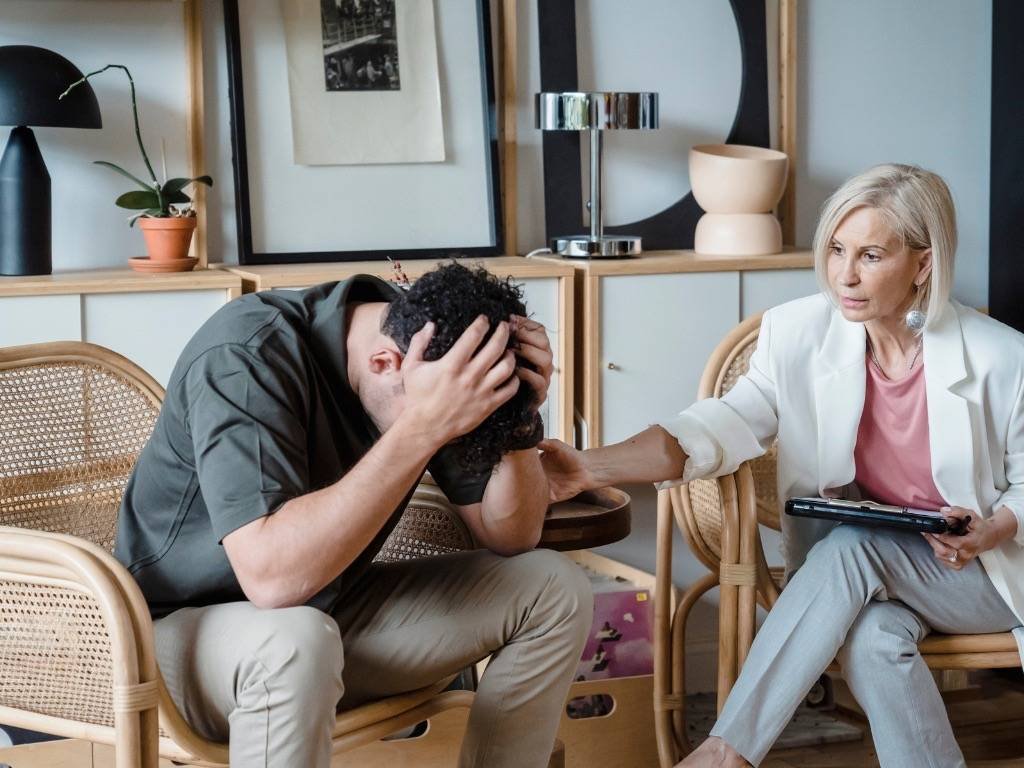Recognizing the signs of mental health disorders can save lives. Mental health challenges are often invisible, yet they affect millions of people worldwide. Unfortunately, many signs go unnoticed or misunderstood until the condition becomes severe.
By learning how to recognize these warning signs early, you can take proactive steps to protect your own well-being or support a loved one. Awareness reduces stigma, encourages timely help, and ultimately leads to better recovery outcomes.
This article provides a comprehensive guide to identifying the most common signs and symptoms of mental health disorders, when to seek help, and how to support others.
Why It’s Important to Recognize the Signs
- Early Intervention – The sooner a disorder is recognized, the easier it is to manage and treat.
- Preventing Escalation – Early recognition prevents conditions like anxiety or depression from becoming more severe.
- Reducing Stigma – Awareness helps normalize conversations around mental health, encouraging more people to seek help.
- Supporting Loved Ones – Recognizing symptoms empowers you to offer compassion and guidance to those in need.
Common Signs of Mental Health Disorders
While symptoms vary between conditions, there are universal warning signs that often signal emotional or psychological distress.
1. Changes in Mood
- Persistent sadness or hopelessness.
- Excessive irritability or anger.
- Sudden mood swings.
2. Behavioral Changes
- Withdrawal from friends, family, or social activities.
- Loss of interest in hobbies or work.
- Risk-taking or self-destructive behavior.
3. Cognitive Symptoms
- Difficulty concentrating or making decisions.
- Racing thoughts or constant worry.
- Memory lapses.
4. Physical Symptoms
- Fatigue, even after rest.
- Headaches or stomach issues with no clear cause.
- Changes in sleep or appetite.
Signs of Specific Mental Health Conditions
Anxiety Disorders
- Restlessness or feeling “on edge.”
- Racing heart, sweating, or panic attacks.
- Avoiding situations that trigger fear.
Depression
- Loss of interest in activities once enjoyed.
- Changes in appetite and sleep patterns.
- Persistent feelings of guilt or worthlessness.
Bipolar Disorder
- Episodes of intense energy and euphoria (mania).
- Impulsive spending, risky behavior.
- Deep depressive phases following highs.
Post-Traumatic Stress Disorder (PTSD)
- Flashbacks or nightmares about trauma.
- Avoiding reminders of the traumatic event.
- Hypervigilance and exaggerated startle response.
Eating Disorders
- Obsessive focus on weight or body image.
- Extreme dieting, bingeing, or purging.
- Physical changes like sudden weight loss.
When to Seek Help
It’s time to seek professional support if you or someone you know experiences:
- Symptoms lasting longer than two weeks.
- Interference with daily responsibilities (work, school, family).
- Persistent thoughts of self-harm or hopelessness.
- Extreme mood swings or loss of touch with reality.
💬 How to Support Someone Struggling
- Listen without judgment – Create a safe space for open conversation.
- Encourage professional help – Suggest therapy, counseling, or a medical check-up.
- Offer practical support – Help with daily tasks, accompany them to appointments.
- Be patient – Recovery is not linear; it takes time.
🔮 Building Awareness and Resilience
Recognizing the signs of mental health disorders is not just about spotting problems—it’s about creating a culture of compassion and support. By fostering awareness, encouraging conversations, and practicing self-care, we can build stronger, healthier communities.
Mental health disorders affect millions, but with awareness and early recognition, recovery is possible. Learning to identify the signs of mental health disorders helps break stigma, encourages timely treatment, and strengthens support networks.
🌍 The Role of Awareness in Breaking Stigma
Recognizing the signs of mental health disorders is not only about early detection—it’s also about changing how society views mental health. Too often, people hide their struggles out of fear of judgment. By openly discussing symptoms like anxiety, depression, or mood changes, we create a culture where seeking help is seen as a strength, not a weakness. Increased awareness encourages compassion, reduces discrimination, and ensures that more people access the support they need before their condition worsens.
If you or someone you know is struggling, remember: you are not alone, and help is available.
For further information, visit National Institute of Mental Health – Warning Signs of Mental Illness.
Want more expert insights on mental health and well-being?
👉 Subscribe to LivingWisdomNow and receive weekly guides on emotional resilience, personal growth, and self-care.
FAQ
Q: What are the first signs of a mental health disorder?
Changes in mood, behavior, sleep, and social interaction are early indicators.
Q: How do I know if I have a mental health problem?
Persistent sadness, anxiety, or behavior changes that interfere with daily life may signal a disorder.
Q: Can physical symptoms indicate mental health issues?
Yes—fatigue, headaches, and stomach problems can often be linked to psychological stress.
Q: What should I do if I notice signs in a loved one?
Encourage open conversation, listen without judgment, and recommend professional support.
Q: Are mental health disorders treatable?
Yes—therapy, medication, lifestyle changes, and community support can significantly improve quality of life.







[…] Mental health refers to a person’s emotional, psychological, and social well-being. It influences how individuals handle stress, relate to others, and make choices. Good mental health allows people to reach their full potential, work productively, and cope with the stresses of life. […]